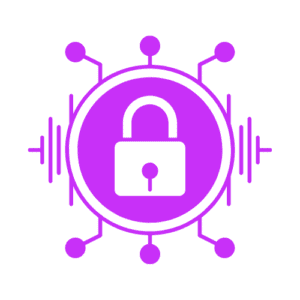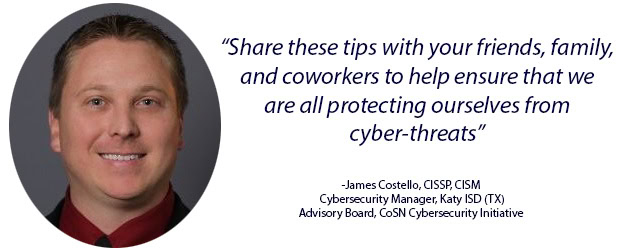October 2024 marks the 21st Cybersecurity Awareness Month! This collaborative effort from industry experts helps the public to be aware of ways they can protect themselves and reduce risks while online.
If you have a phone, a computer, a tablet, or anything that connects to the internet, you are a cyber defender. Below are our top hints and tips for helping you to stay safe while online.
Strong Passwords and Password Managers
Having a strong password is the first step in protecting your online accounts and with the help of password managers, it’s never been easier! These password managers can store unique passwords in an encrypted vault that only you, and those you designate, will have access too. Instead of trying to remember several long and complex passwords, you’ll only need to remember one password, and the password manager will assist with the rest.
Multi Factor Authentication
Multi-factor authentication (MFA), sometimes called 2-factor authentication, creates another level of security to prevent world-wide threat actors from accessing your accounts. MFA is commonly found in banking, medical, shopping, and almost any website these days. It is recommended that you turn on MFA any time it is available, to protect you and your information. 
Think Before You Click
What’s the most common way for cybercriminals to get your sensitive information? It’s when you click on something you shouldn’t have. Malicious links in email, texts, posts, and social media messages are a quick way for hackers to get your information. Be wary of clicking on links or downloading anything that comes from a stranger or that you were not expecting. If it sounds too good to be true, it probably is. Before you click, take the time to look for red flags that make the message suspicious.
Report Phishing
One of the best ways to take down cybercriminals is by reporting phishing attempts, and nowadays its easier than ever. If the email came to your work email address, report it to your IT manager or security team as quickly as possible. If you’re at home and the email came to your personal email address, do not click on any links (even the unsubscribe link) or reply to the email. Most email programs and social media platforms allow you to report phishing attempts. But don’t keep that phishing message around – delete it ASAP. You can further protect yourself by blocking the sender from your email program, social media platform or phone.
Identity Theft Protection: Freeze Your Credit
With all the data breaches that have occurred, it is likely that your personal information is out there. You can contact the three major credit agencies, Equifax, Experian, and TransUnion, to protect yourself from identity theft and the pain that comes with it. If you have children, you can protect them by freezing their credit too.

AUTHOR: James B. Costello, Cybersecurity Manager, Katy Independent School District (TX)
CoSN Cybersecurity Advisory Committee
Published on: October 15, 2024
CoSN is vendor neutral and does not endorse products or services. Any mention of a specific solution is for contextual purposes.



